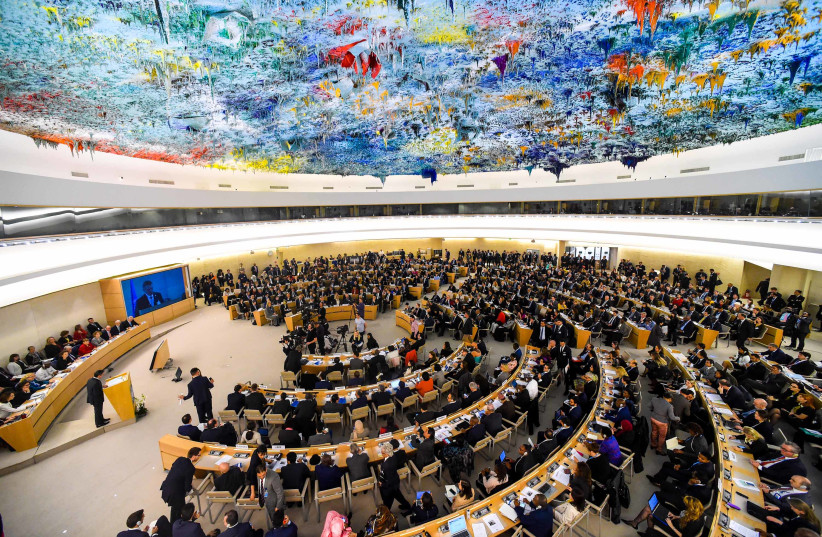Remarks made by human rights investigator Miloon Kothari about a “Jewish Lobby” can be reasonably considered to be antisemitic, United Nations Human Rights Council President Federico Villegas said on Friday. “I respectfully suggest that Commissioner Kothari consider the possibility of publicly clarifying his unfortunate comments and his intentions behind them,” said Villegas, who is Argentina’s Ambassador to the UN in Geneva.
He spoke out in a letter to the head of the UNHRC’s Commission of Inquiry on Israel, Navi Pillay of South Africa.
She and two other human rights experts, Kothari of India and Chris Sidoti of Australia, are tasked through the COI with investigating allegations of Israeli human rights abuses against Palestinians and Israeli-Arabs.
The three-member COI has been controversial since its inception last year, due to its unusual status as an open-ended probe and its intention to investigate Israel for the crime of apartheid.
In an interview with the Mondoweiss website last week about the COI’s work, Kothari said that “we are very disheartened by the social media that is controlled largely by, – whether it is the Jewish lobby or specific NGOs.”

At another point in the interview, he said, “I would go as far as to raise the question of why are they [Israel] even a member of the UN.”
Villegas told Pillay, “some of the comments made by Commissioner Miloon Kothari could reasonably be interpreted as stigmatization of the Jewish people, which, as all are aware, is at the heart of any expressions of antisemitism."
Pillay defended Kothari in a letter she wrote to Villegas on Thursday, explaining that the remarks had been taken out of context and the accusation of antisemitism had been leveled against the COI from the start.
She quoted a statement Sidoti had made at a UNHRC meeting in June that “Jews are throwing around accusations of antisemitism like rice at a wedding.”
After reading Pillay’s comments, Israel’s Ambassador to the UN in Geneva Meirav Eilon Shahar wrote a letter to Villegas on Friday.
“This issue comes down to one simple question, is the term “the Jewish Lobby” antisemitic?” she said.
“This issue comes down to one simple question, is the term “the Jewish Lobby” antisemitic?”
Meirav Eilon Shahar
“Even in the context Ms. Pillay claims, that Mr. Kothari was discussing governments and NGOs’ attempts to discredit them, both Mr. Kothari and now Ms. Pillay seem to place the blame for this on an imaginary “Jewish lobby”, an age-old antisemitic trope.”
Speaking out against Kothari
Since Kothari’s interview, a number of countries have spoken out against his remarks including the United States, the Czech Republic, Germany, Great Britain, France and Canada.
Germany’s mission to the UN in Geneva tweeted that it stood firmly “against any form of antisemitism. We therefore deeply deplore recent statements by Miloon Kothari, member of the COI on Israel/OPT.”
The United Kingdom’s ambassador to the UN in Geneva, Simon Manley, twitted, that Kothari’s comments “questioning Israel’s UN membership and speaking of “the Jewish lobby” controlling social media are unacceptable and offensive.”